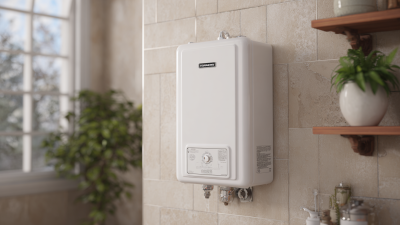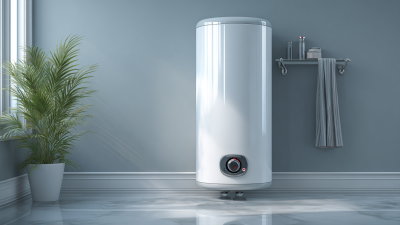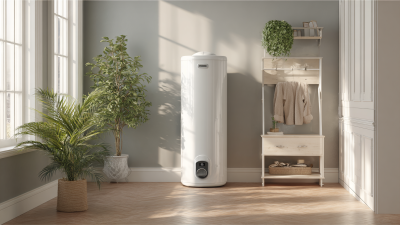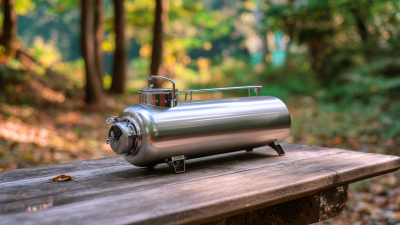
Choosing the right Hot Cold Water Heater for your home is a decision that can significantly impact your comfort, energy efficiency, and overall household expenses. With an overwhelming number of options available, determining which model best suits your needs can seem daunting. This comprehensive guide aims to simplify your search by presenting key factors to consider, including energy efficiency ratings, capacity requirements, and installation types. By exploring the latest technologies and innovations in water heating systems, you will be better equipped to make an informed choice that not only meets your immediate requirements but also enhances your home's efficiency and sustainability. Whether you are upgrading an existing system or installing a new one, understanding what features to prioritize will ensure you choose the best Hot Cold Water Heater tailored specifically for your lifestyle and budget.
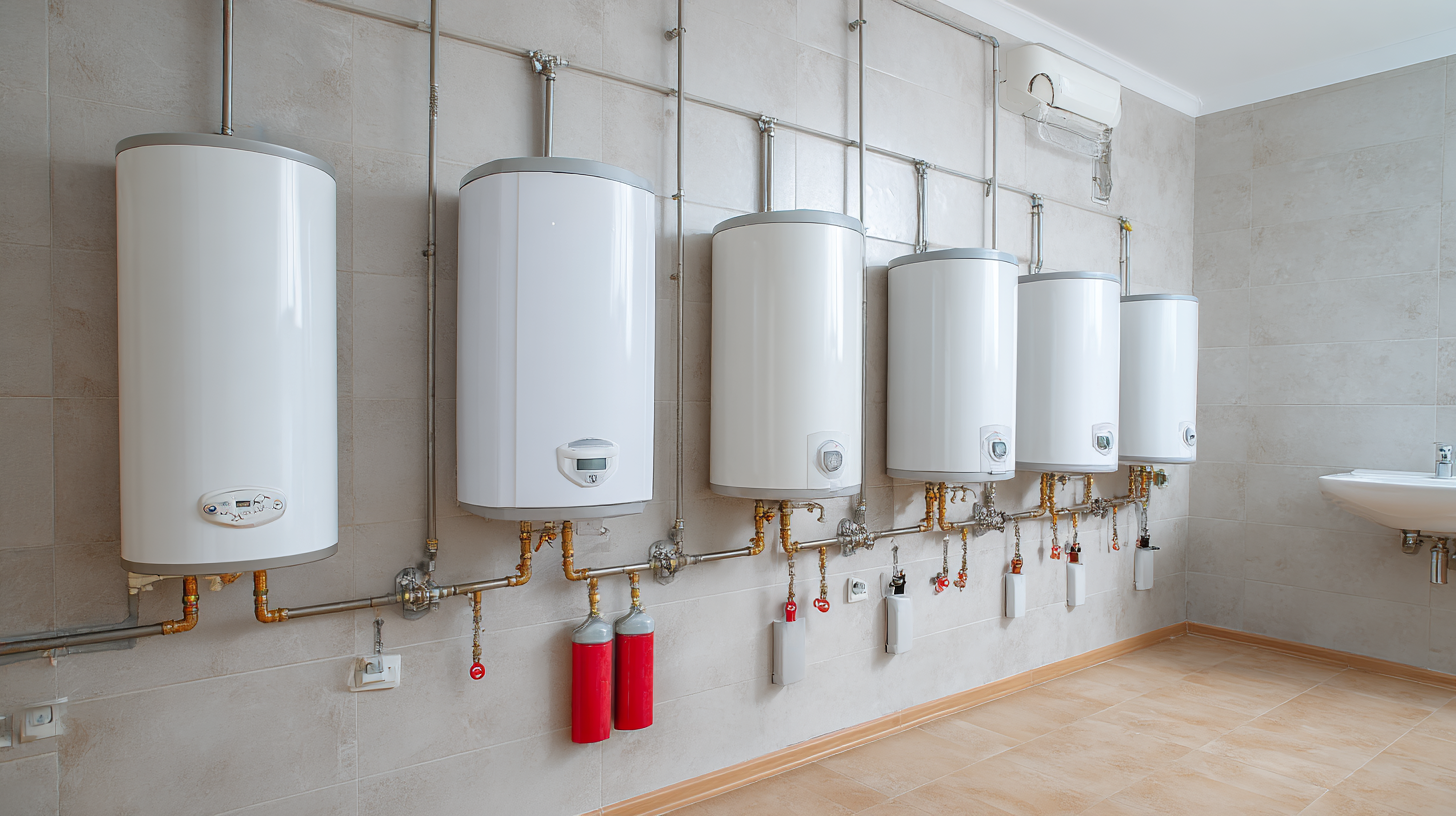
When considering the efficiency of your home's water heating system, understanding the different types of hot and cold water heaters is crucial. Generally, water heaters fall into two main categories: tank and tankless systems. Tank water heaters store a specific amount of hot water, making it readily available for use. While they typically have lower upfront costs, they can be less energy-efficient due to standby heat loss—energy wasted while water is kept at temperature, even when not in use.
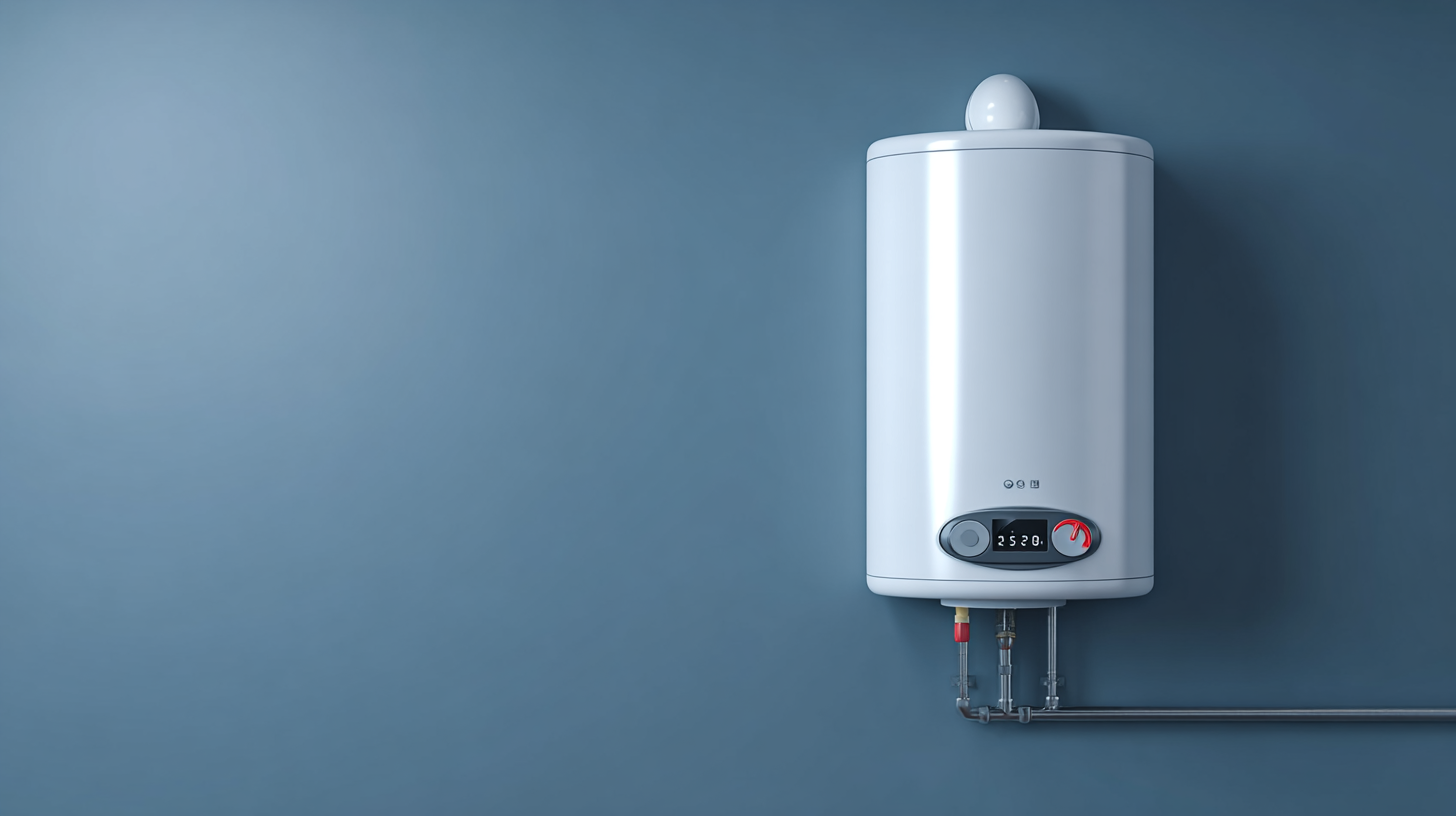
On the other hand, tankless water heaters, also known as on-demand water heaters, heat water directly as it flows through the unit. This eliminates the need for a storage tank and can significantly reduce energy costs, as they only operate when hot water is needed. Although the initial investment is usually higher, the long-term savings on energy bills can make it a worthwhile consideration for those focused on efficiency. By evaluating your hot and cold water needs alongside these heating options, you can make an informed decision that enhances your home’s energy efficiency.
When selecting a hot cold water heater, understanding energy efficiency ratings is crucial for making an informed decision. Energy efficiency is typically measured through metrics like the Energy Factor (EF), which indicates how effectively a water heater converts energy into hot water. A higher EF value signifies greater efficiency, which not only reduces energy consumption but also leads to lower utility bills. It's important to compare models, as different types, such as tankless or storage water heaters, can exhibit varying energy efficiencies.

Additionally, consider the Energy Guide label, which provides useful information about the expected annual energy costs associated with a specific water heater. This label allows homeowners to make side-by-side comparisons easily. Look for models that qualify for ENERGY STAR certification, as these products meet strict energy efficiency guidelines set by the U.S. Environmental Protection Agency. By focusing on these ratings, homeowners can ensure that they invest in a water heater that not only meets their water heating needs but also contributes to long-term energy savings and environmental sustainability.
When choosing the right hot water heater, understanding the comparative advantages of different fuel types—electric, gas, and solar—is essential for enhancing home efficiency. Electric water heaters typically offer straightforward installation and may be cheaper upfront, but they can lead to higher operational costs depending on local electricity rates. Recent analyses have highlighted that during cold months, homeowners might feel the pinch from escalating electricity bills, further complicating cost-benefit assessments for electric heating systems.
On the other hand, gas water heaters can provide rapid heating and may be more economically viable in some regions. However, their environmental impact is significant; methane emissions from natural gas can contribute heavily to climate change. Studies have attempted to quantify these emissions to advocate for cleaner fuel alternatives. Solar water heaters present a sustainable choice, harnessing renewable energy and potentially leading to long-term savings. Research into innovative solar applications, such as those using advanced nanofluids for improved efficiency, showcases the potential of solar technology to reduce dependency on fossil fuels while minimizing operational costs.
When choosing a hot cold water heater, understanding the balance between installation costs and long-term savings is crucial. Initially, affordable units may seem appealing, but they often come with higher energy bills over time. It's important to assess the energy efficiency rating of each model, as this will significantly affect utility costs. For instance, high-efficiency heaters might have a higher upfront cost, yet their advanced technology results in lower operating expenses, often recouping the initial investment in the long run.
Moreover, installation costs can vary widely based on the type of heater and the specific requirements of your home. Consider not only the purchase price but also the price of installation services and any necessary modifications to plumbing or electrical systems. Taking the time to evaluate these factors can lead to more informed decisions, ensuring that the chosen heater not only meets current demands but also aligns with your budget and efficiency goals over time. Engaging with professionals who can provide insights into potential savings can further enhance your investment in home comfort and efficiency.
| Water Heater Type | Installation Cost ($) | Annual Energy Cost ($) | Lifespan (Years) | Total Lifetime Cost ($) | Energy Efficiency (EF) |
|---|---|---|---|---|---|
| Tank Electric | 1200 | 450 | 10 | 5700 | 0.90 |
| Tank Gas | 1300 | 350 | 12 | 5800 | 0.65 |
| Tankless Electric | 1500 | 200 | 20 | 5500 | 0.99 |
| Tankless Gas | 1600 | 150 | 20 | 5700 | 0.97 |
| Heat Pump | 2000 | 300 | 15 | 7200 | 2.00 |
When it comes to maximizing the efficiency of your hot and cold water heater, regular maintenance is crucial. Simple tasks such as flushing the tank annually can remove sediment buildup, which not only enhances performance but also extends the unit's lifespan. Additionally, checking the anode rod periodically can prevent rust and corrosion, ensuring that your water heater operates effectively for years to come. Routine inspections help identify potential issues before they escalate, ultimately saving both energy and repair costs.
Lifespan considerations are equally important in the decision-making process for a water heater. Most models have a typical lifespan of 10-15 years; thus, keeping track of usage and performance can signal when it might be time for a replacement. Investing in high-efficiency models can lead to significant savings on energy bills, and understanding the warranty options available can further protect your investment. By prioritizing maintenance and being mindful of your water heater's lifespan, you can ensure optimal performance and efficiency in your home for the long term.

